Digging It | New England Garden Gift Guide
Gifts for the garden—from hand-forged tools to all-weather urns—lend their own beauty to the landscape. And when they’re rooted in the creativity of New England artisans and companies, they only deepen the enjoyment of our backyard Edens.
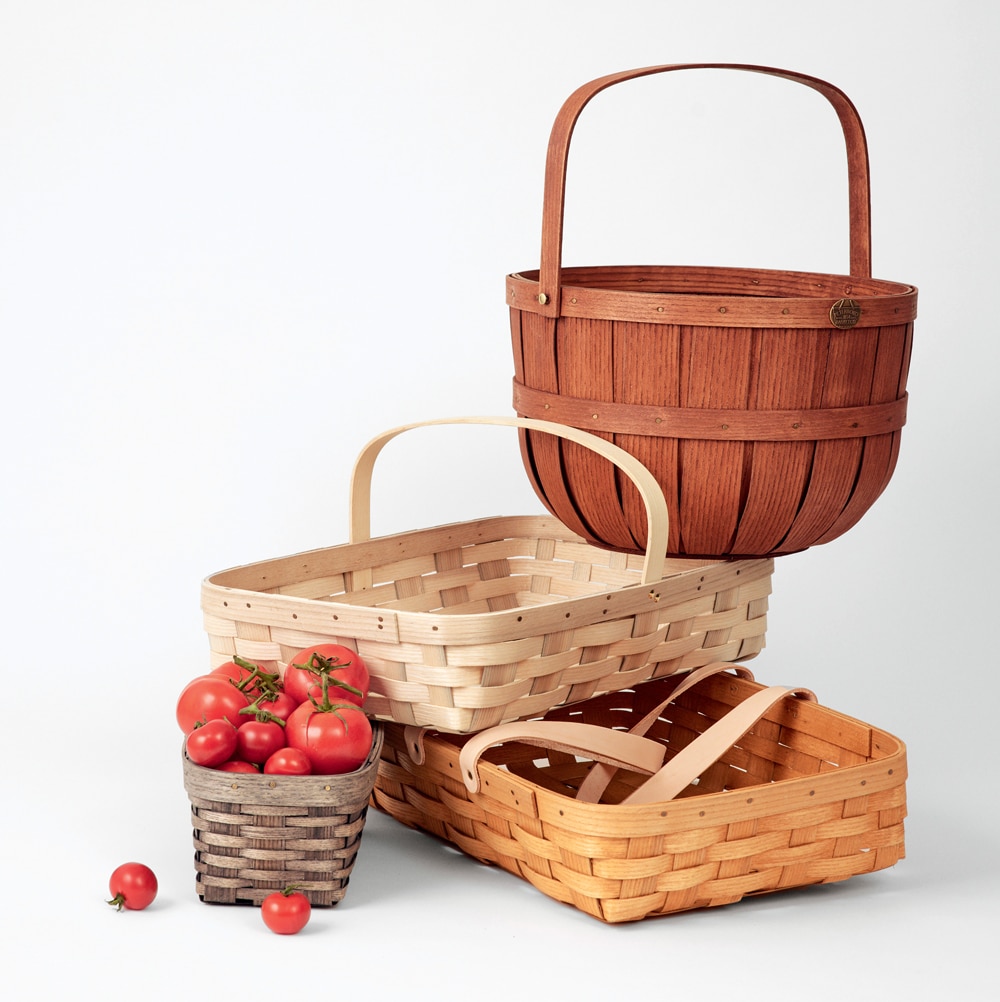
Woven Baskets
Peterboro Basket Company | Peterborough, NH
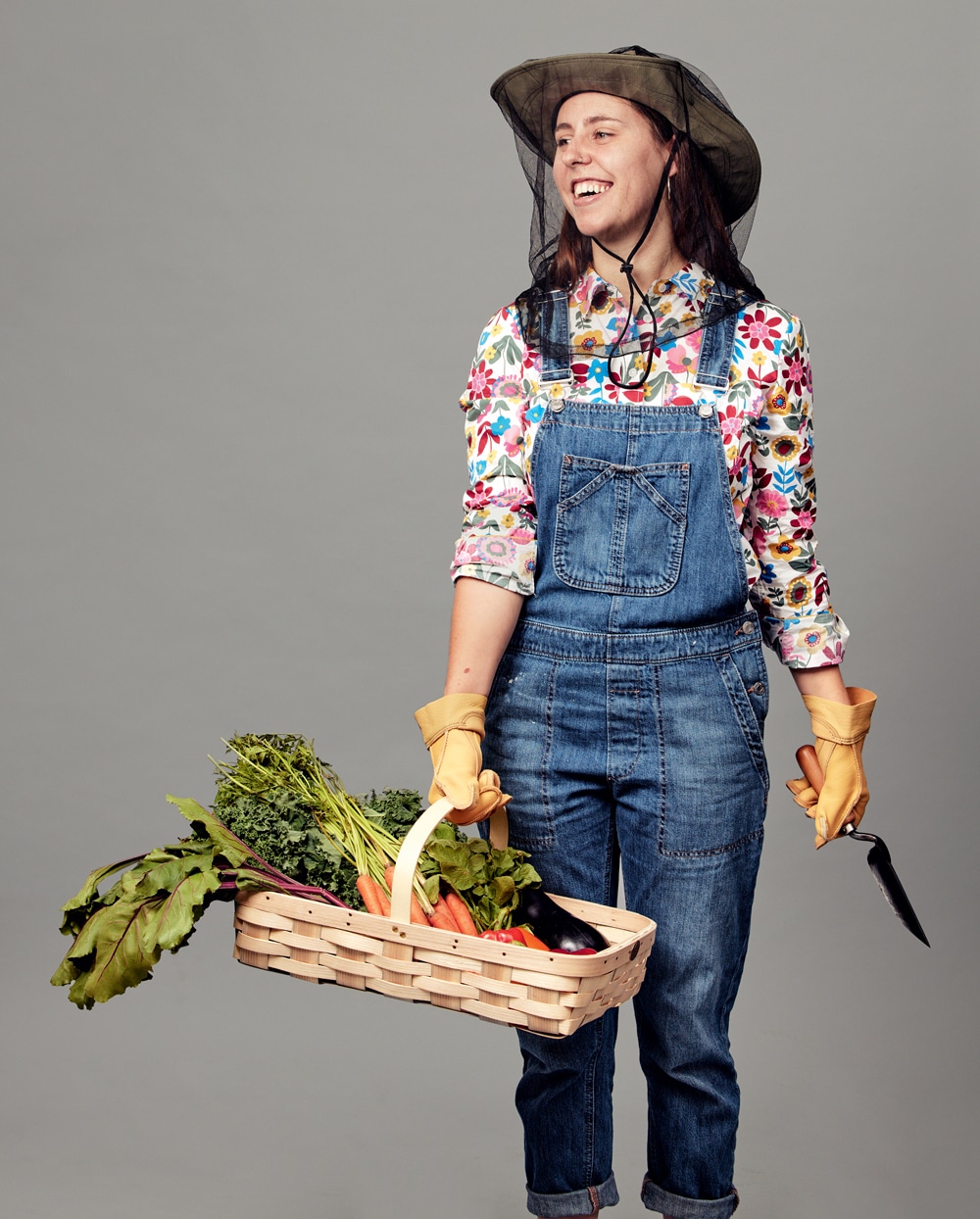
Photo Credit : Michael D. Wilson
New England Garden Gift Guide
Outdoor Gear
L.L. Bean | Freeport, ME
It was inevitable that we would ground ourselves (so to speak) in that most quintessential item of Yankee footwear: the L.L. Bean Boot. This garden-friendly iteration—the slip-on, slip-off rubber moc—is a shorty treatment of the classic Bean duck boot, a silhouette as comforting and familiar as flannel.
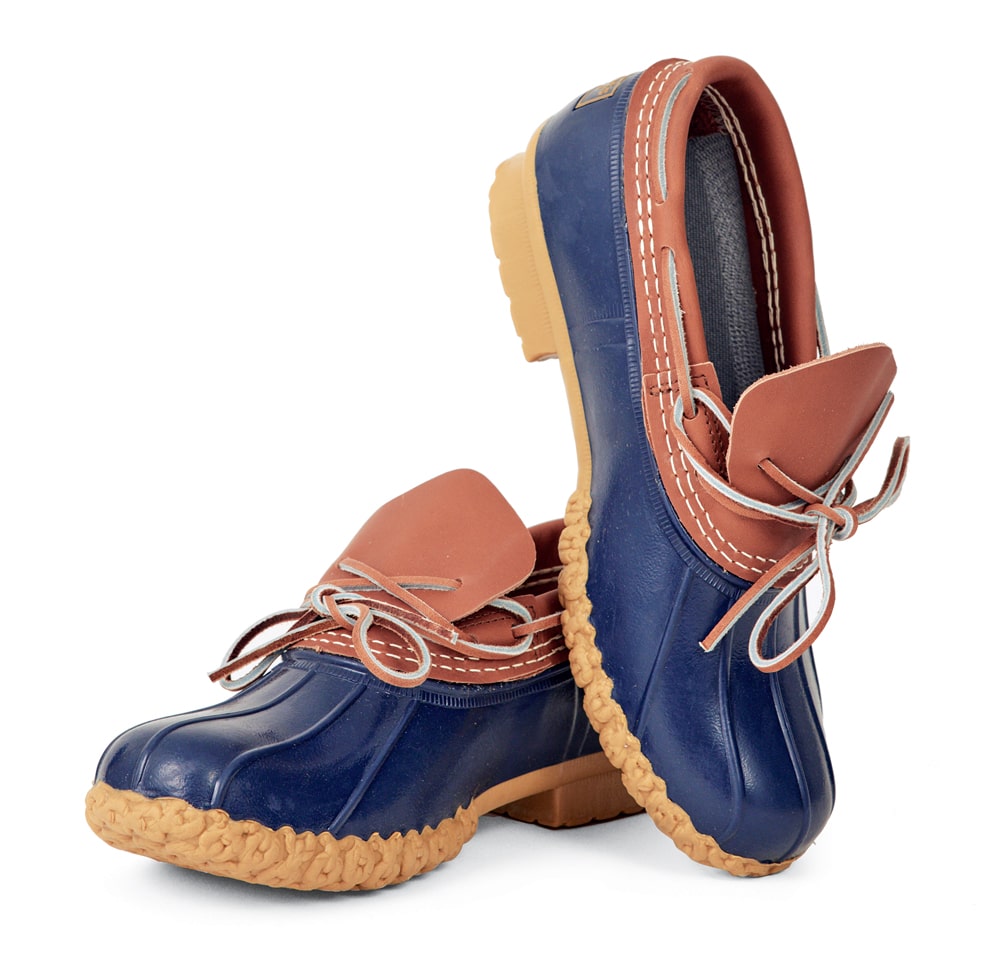
L.L. Bean | Freeport, ME
Photo Credit : Michael D. Wilson
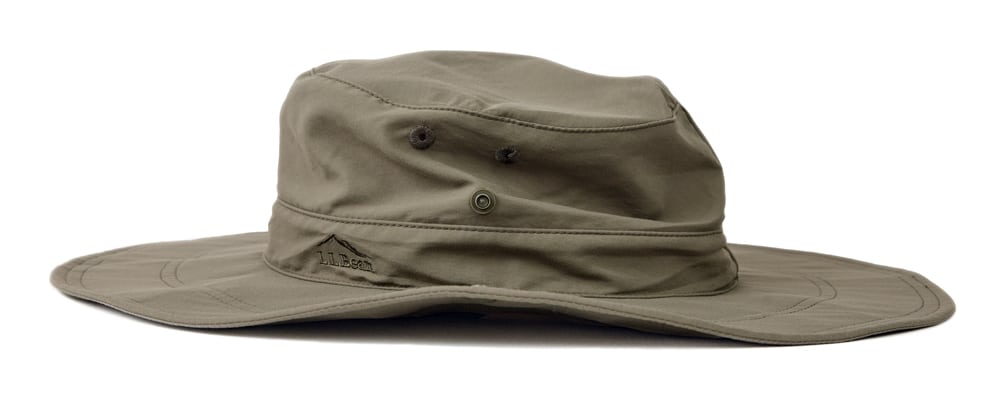
L.L. Bean | Freeport, ME
Photo Credit : Michael D. Wilson
Like its iconic sibling, the boot that started the Bean empire in 1912, this one is still handmade in Maine, one pair at a time; still kicking it. For the full Bean lookbook effect, pair with a broad-brimmed No Fly Zone boonie hat and a Sea to Summit mosquito head net, treated with Insect Shield. After all, what is summer without a mosquito net? Rubber mocs, $99; boonie hat, $34.95; head net, $14.95. llbean.com
Planters & Urns
Lunaform of Maine | Sullivan, ME
Nearly three decades ago, this coastal studio founded by Phid Lawless and Dan Farrenkopf produced its first piece, the Luna urn, and at 24 inches tall and weighing 210 pounds, they thought it was immense. Since then, the dazzling array of handmade planters and urns, seemingly sprung from the studios of ancient Greece, have continued to embody graceful design, gravitas, and presence. The tallest urn, XL Milano, reaches 66 inches and weighs 1,020 pounds, but be not daunted, as there is a range of sizes, shapes, and finishes.
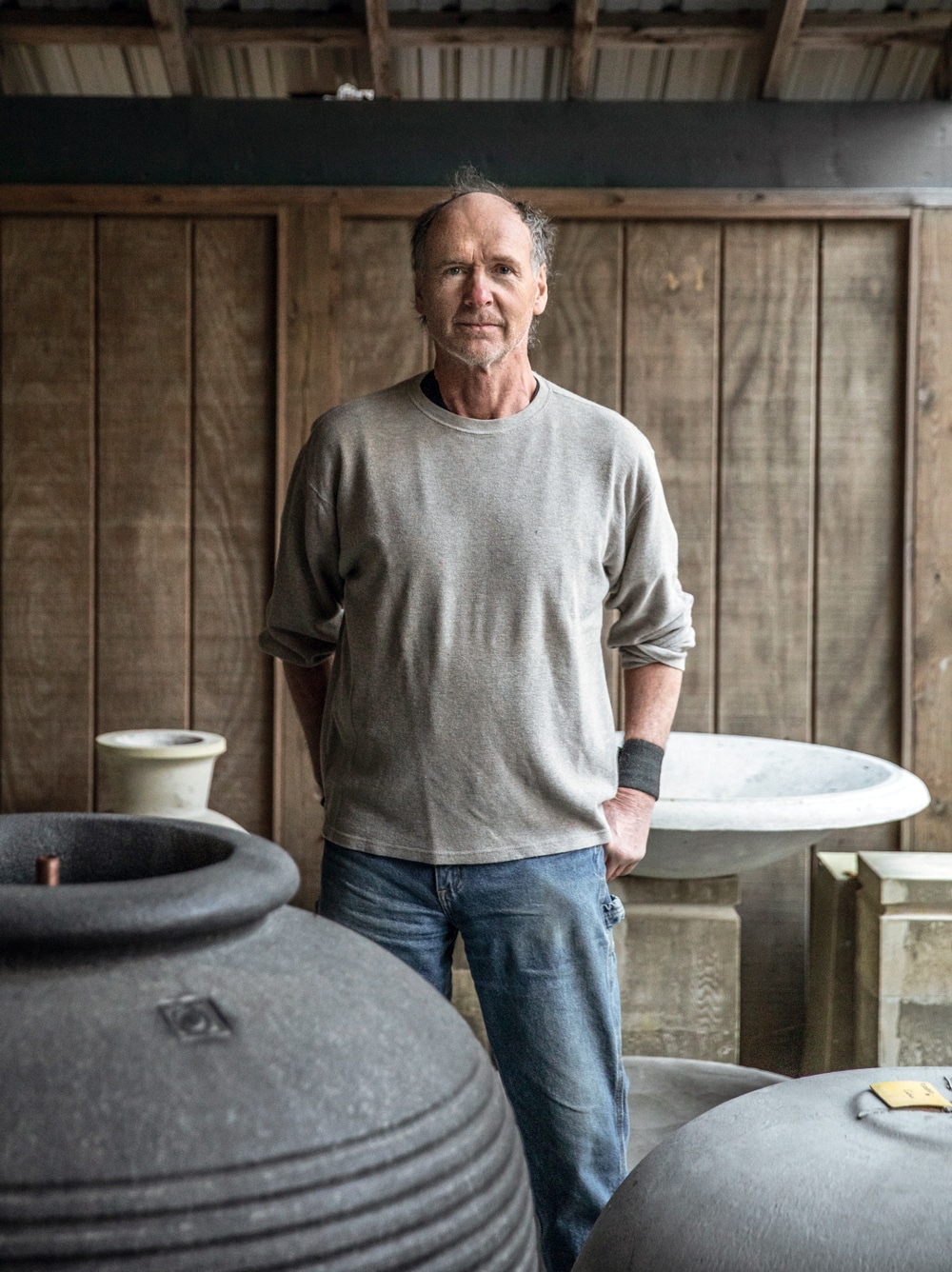
Photo Credit : Greta Rybus
“The Carini is a sweet piece that people can carry away,” notes Farrenkopf, and the Tulip is another planter that falls in the 40-pound range. Most important, these pots are made to survive weather. The process is proprietary, almost alchemical, and unapologetic in its use of concrete, which Farrenkopf considers “a superb, noble, and ancient building material.” Each pot is hand-built on an interior mold, wrapped in a steel matrix, and hand-turned on a wheel. If that can’t whup a Maine winter…From $275; lunaform.com
Outdoor Seating
Jeff Soderbergh | Portsmouth, RI
If you’ve ever encountered Jeff Soderbergh’s kingdom of reclaimed beauty, you’ll never forget it: the heaps of beautiful barn remnants, curated wood, curled metal, aged bits of curious salvage, all waiting to be repurposed. Over time, Soderbergh’s eye has only become more refined, more attuned to every morsel of hand-selected material. “Early homes, mill buildings, ships, churches, schools, and barns are carefully surveyed,” he writes, detailing his sources.
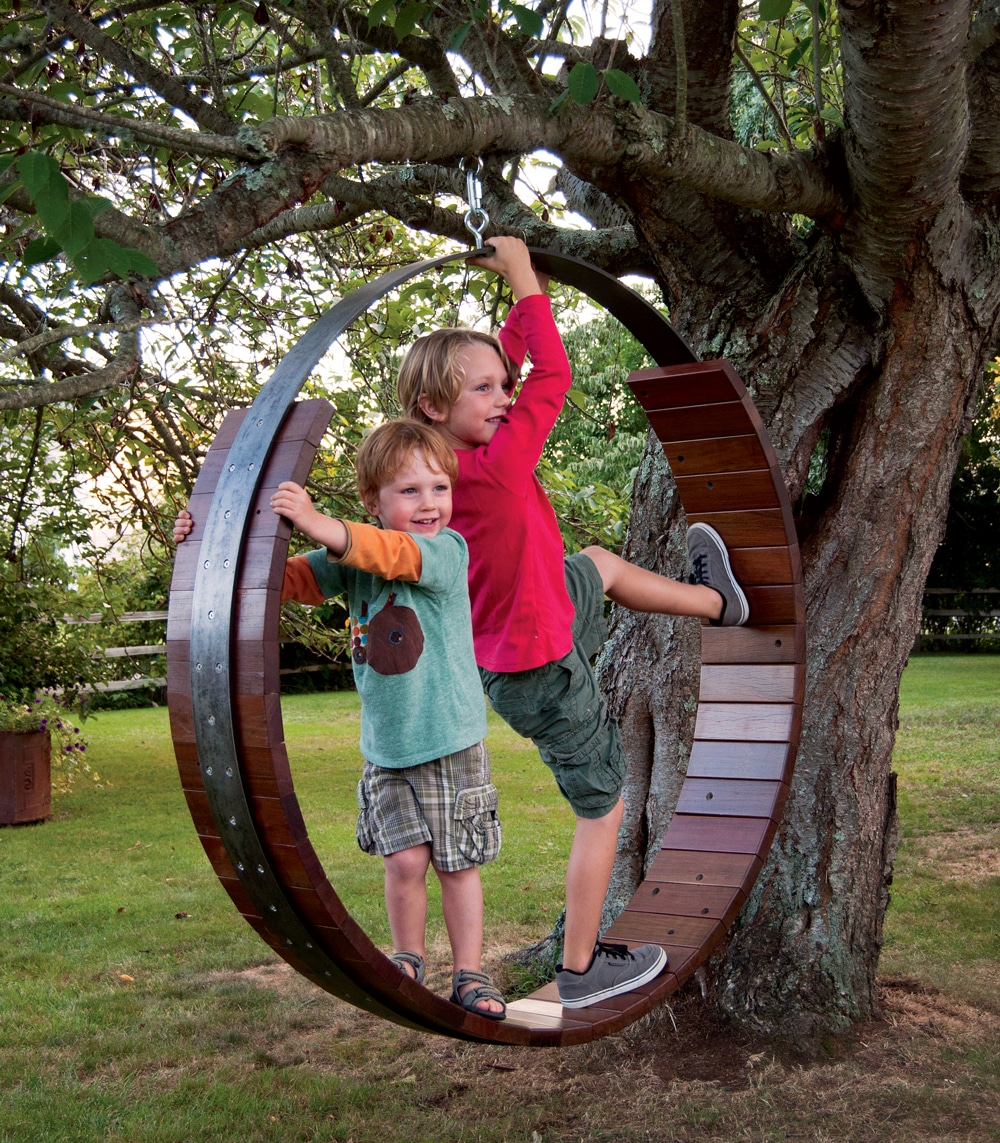
Jeff Soderbergh | Portsmouth, RI
Photo Credit : Nat Rea
Revived and renewed, these pieces come back as custom furnishings, sculptural and clean. “Beauty in the raw,” he calls it. That finds humorous expression in his Ring Chair—the ultimate variation on a hammock—incorporating a rugged steel ring topped off with original Coney Island boardwalk decking and produced in small batches. It’s the perfect spot to literally hang out and admire your garden handiwork. From $3,200; jeffsoderbergh.com
Gardening Tools
Ashfield Tools | Ashfield, MA
The right tool really does make a difference, and the prospect of using a hand-forged garden implement like the ones from Ned James’s Ashfield Tools is catnip for serious green thumbs. After studying metalwork at the Boston School of the Museum of Fine Arts, James pursued the ultimate smithy pedigree, working at the Old Sturbridge Village Blacksmith Shop before venturing out on his own to do custom work for architects and historic houses.
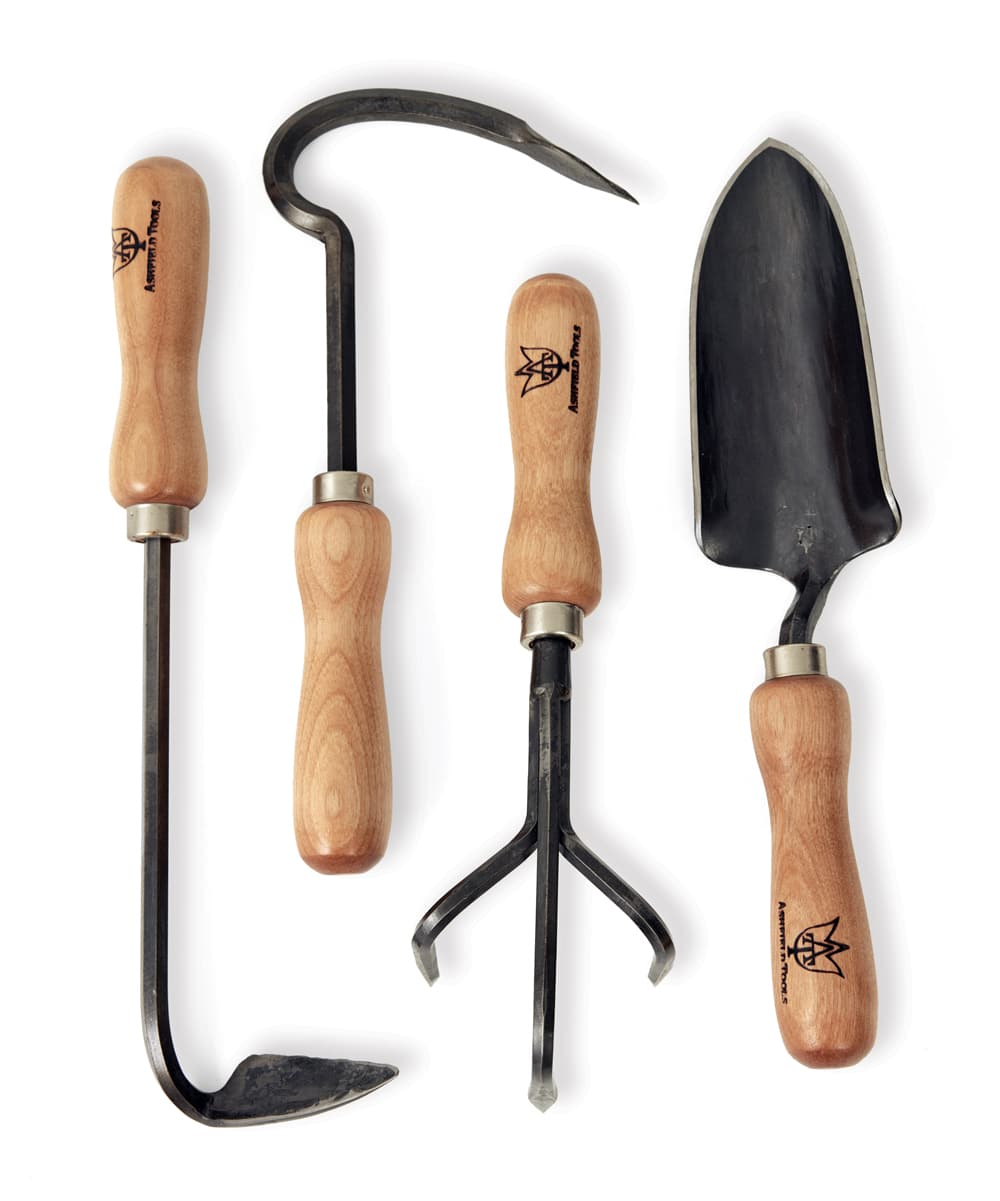
Ashfield Tools | Ashfield, MA
Photo Credit : Michael D. Wilson
He has spent most of his life “trying to master metalworking skills as old as New England itself,” he says. Hand-forged trowels, hand plows, hand hoes, and deadly-looking viper weeders attest to his mastery, rendered in high-carbon tool steel. From $42; minimum two-week turnaround. ashfieldtools.com
Woven Baskets
Peterboro Basket Company | Peterborough, NH
There’s hardly a basket style imaginable that hasn’t been woven at the oldest continuous manufacturer of baskets in the country, established in 1854. Franklin Pierce was president then (born a few towns away, in Hillsborough); the town of Peterborough itself wasn’t even 100 years old. But these baskets are timeless.

Peterboro Basket Company | Peterborough, NH
Photo Credit : Michael D. Wilson
And with more than 200 handcrafted versions—shaved and woven on-site—offered at the Dodds family business, you’ve got decisions to make. Go for the handsome New England Half-Bushel Basket, with its rustic Oxford weave? Or a roomy Greenhouse Market Basket, perfect for daily picking? There are gardening caddies, tomato baskets, and multi-task totes—all crafted from Appalachian white ash harvested in Maine, Vermont, and New Hampshire, and all waiting to be filled. Garden baskets from $39; peterborobasket.com
Seeds & Bulbs
There would be no garden without seed, those miraculous specks that contain worlds. And that is their magic. Fortunately, New England’s seed gurus know and understand the challenges of our region’s magical climate, too. High Mowing Organic Seeds, started in 1996, offers more than 700 varieties (its Mesclun Mix reportedly survived every kind of weather last year). Johnny’s Selected Seeds has been growing for 48 years and is one of the original signers of the Safe Seed Pledge (non-GMO).
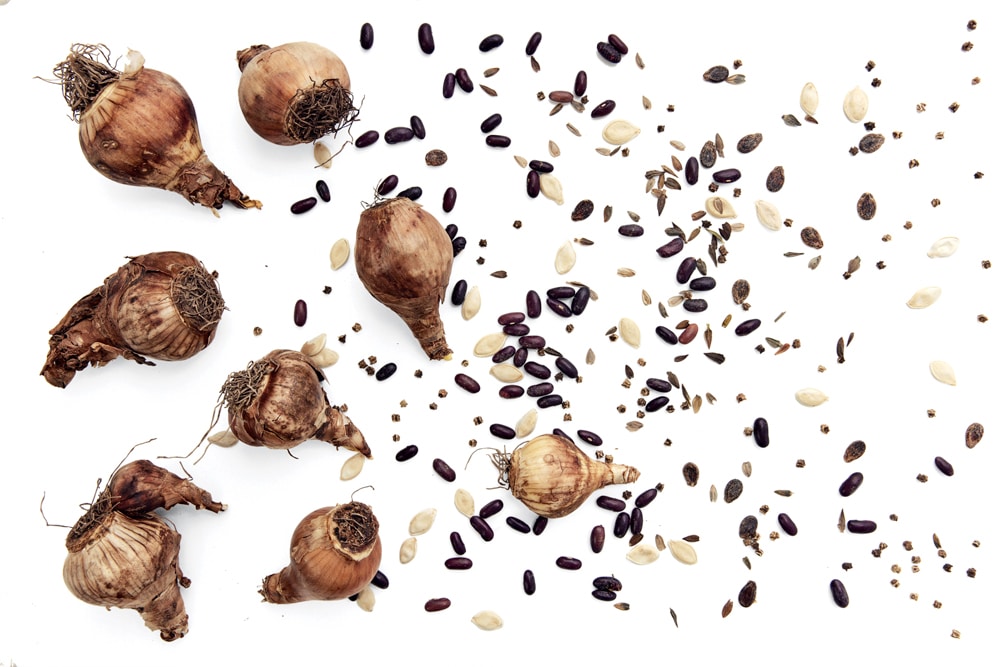
Photo Credit : Michael D. Wilson
Fedco Seeds staunchly advocates cold-hardiness and sustainability (while also offering potato and onion sets). If you’re on the fence about herbs, Artistic Gardens/Le Jardin du Gourmet offers a preselected bundle of 50 small packets for a mere $22; you’ll end up discovering esoterica like pimpernel and cardoon. And pushing the seed envelope a bit, we ask: What are bulbs, really, but just very big seeds? That’s our excuse to peruse the White Flower Farm catalog, and glory in its visions of daffodils. High Mowing Organic Seeds, Wolcott, VT, highmowingseeds.com; Johnny’s Selected Seeds, Winslow, ME, johnnyseeds.com; Fedco Seeds, Clinton, ME, fedcoseeds.com; Artistic Gardens/Le Jardin du Gourmet, St. Johnsbury, VT, artisticgardens.com; White Flower Farm, Litchfield, CT, whiteflowerfarm.com
Birdbaths
Roger DiTarando | Vernon, CT
If you were a smart bird looking for a bath, you’d make a beeline for Roger DiTarando’s creations, wrought of copper and bronze and embodying a mix of realism, artistry, and insouciance. Your bird’s eye might be drawn by, for example, a metal dragonfly perched on the rim, or a hummingbird lightly touching down, lured to the sparkling water.
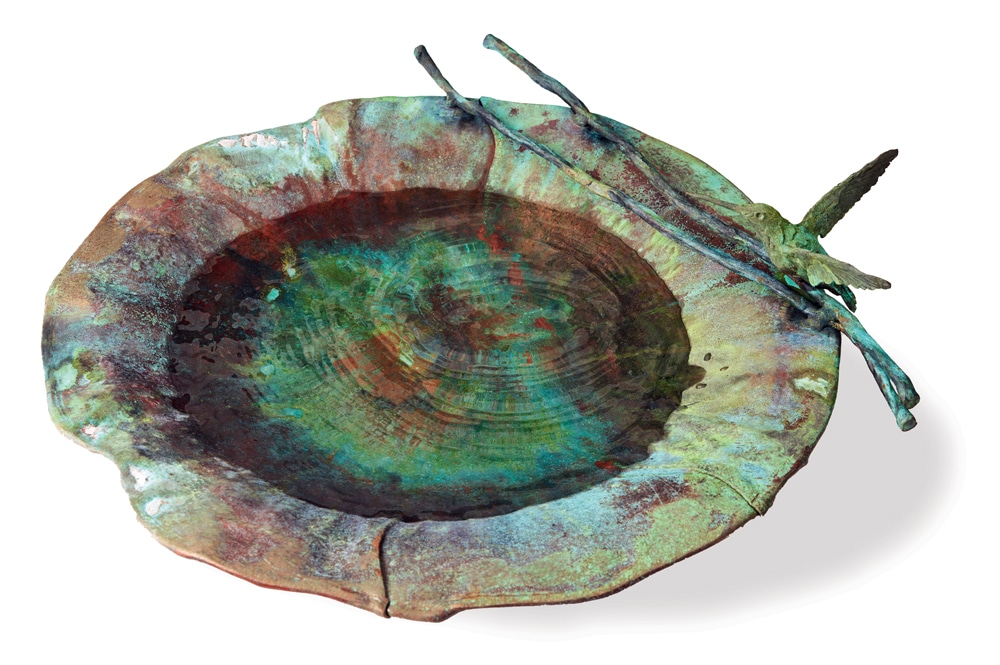
Roger DiTarando | Vernon, CT
Photo Credit : Michael D. Wilson
But then, all of DiTarando’s nature sculptures are arresting, from herons mid-poke, to an otter on alert, to a line of ambling tortoises. While his metalwork combines various techniques—casting, blacksmithing, mold-making—these are simply means to an end: creating sculptures that are, as his website puts it, “an exercise in reverence.” From $200; ditarando.com
Clay Garden Markers
Mavis Butterfield | Cushing, ME
You broadcast a handful of seeds, you plan to label the plot, a few days pass by, and suddenly it’s all a mystery. At some point you’ll be able to ID the burgeoning plants, but here’s the smarter, preemptive move: stocking up on permanent plant markers that you can reuse, year after year, sprinkling them around the garden like a word poem.
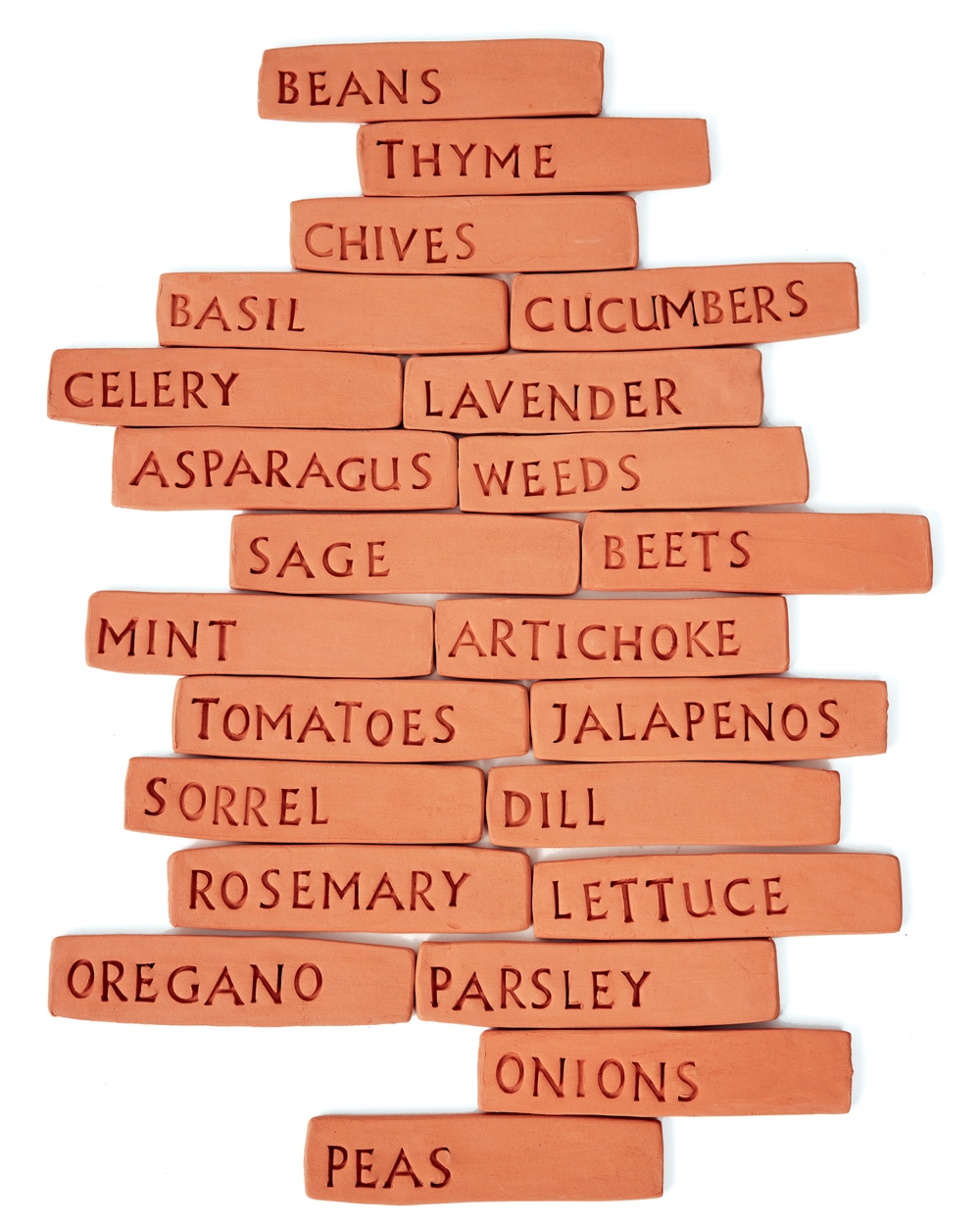
Mavis Butterfield | Cushing, ME
Photo Credit : Michael D. Wilson
Enter Mavis Butterfield, a gardening dynamo whose professed intention is to “grow two tons of food in the backyard.” Between blogging about gardens, crafts, canning, and recipes, she makes time in the winter to craft simple, stamped terracotta garden markers—“I’ve always been a bit of a minimalist!” Peppers, Beets, Spinach, Chives … the straightforward descriptions, pressed into clay, foretell a garden in which you’ll know exactly what’s where. From $7.95; mavisbutterfield.com
Bucket Totes
Sea Bags | Portland, ME
When a swath of recycled sailcloth takes its final creative bow at Sea Bags, located in the heart of Portland’s working waterfront, it’s repurposed by skilled hands into something bold and beautiful. It may become a sporty tote, like the ones they’ve been crafting since 1999, but it could also morph into a more recent creation: the virtually indestructible Gardener’s Bucket.
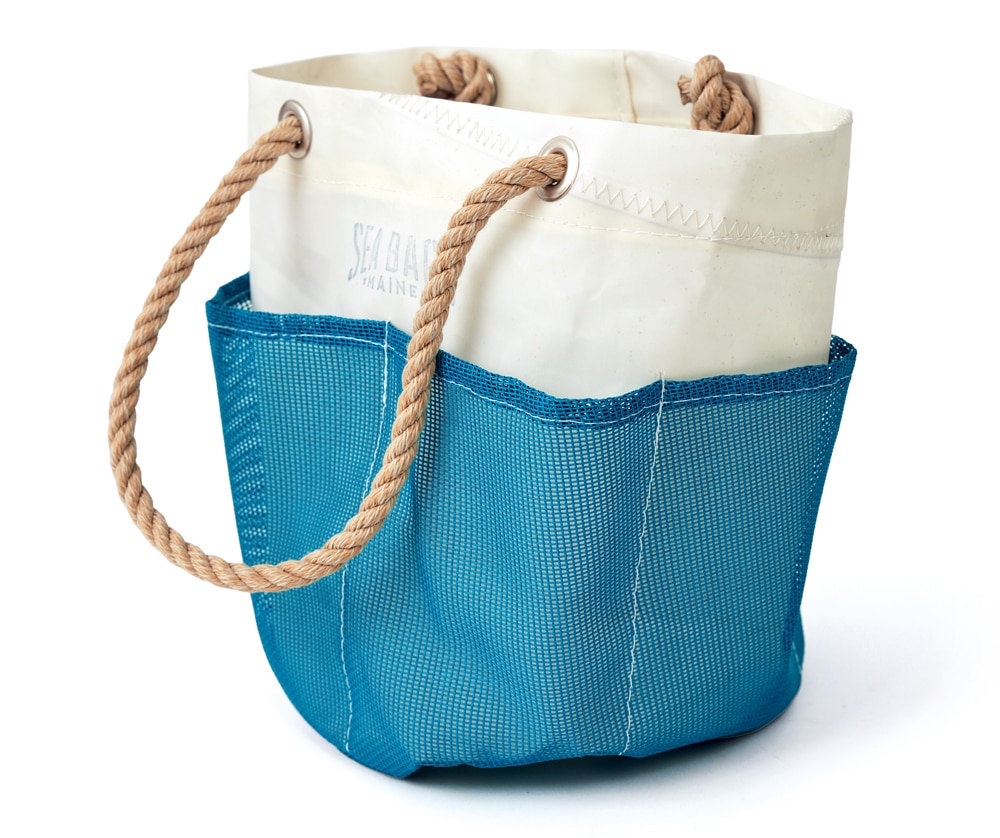
Sea Bags | Portland, ME
Photo Credit : Michael D. Wilson
Hemp rope handles do the heavy lifting, six exterior mesh pockets hold tools where you can see them, and a mesh bottom sifts out sand and dirt. Work it, hose it, or use it as a picnic centerpiece and fill the pockets with napkins, utensils, and condiments. All in all, it promises smooth sailing for gardeners. $75; seabags.com
Work Gloves
Vermont Glove | Randolph, VT
Full disclosure: I got my first pair of “The Vermonter” gloves last year, as a birthday gift. My hands are small, so I sent a tracing, and the rugged goatskin gloves were made to fit by this heritage Green Mountain State company.
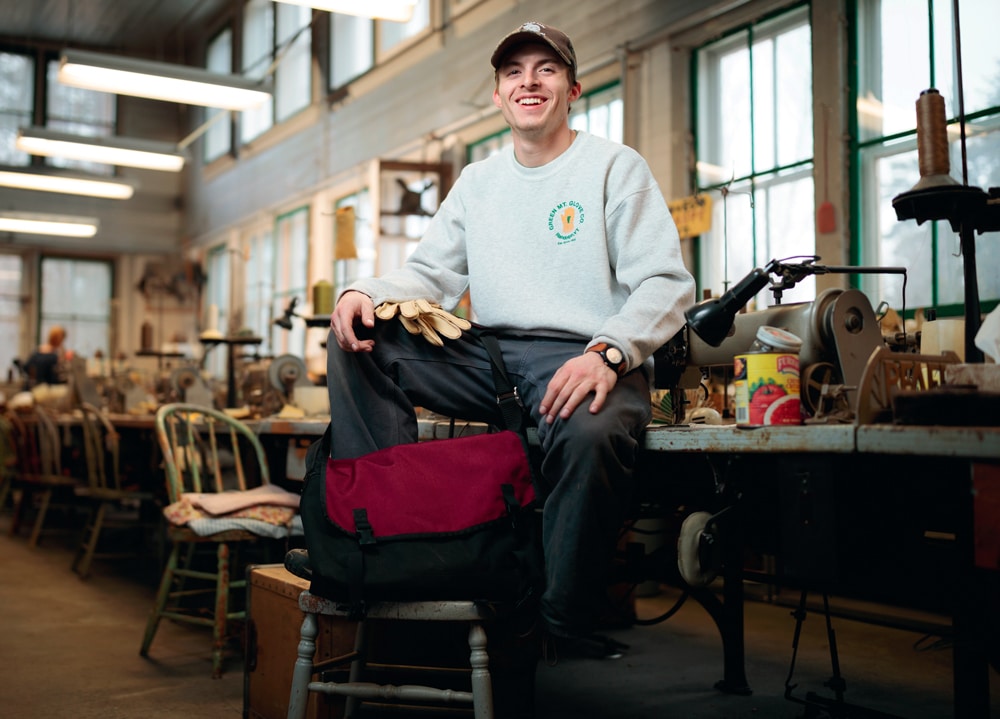
Photo Credit : Ben Deflorio
“These are the only gloves I’d ever own,” a well-known gardening acquaintance told me, and current owner Sam Hooper also started out as an avid fan of these indestructible gloves, originally made by three generations of the Haupt family, who got started outfitting the line workers who were “electrifying the country” in the 1920s.
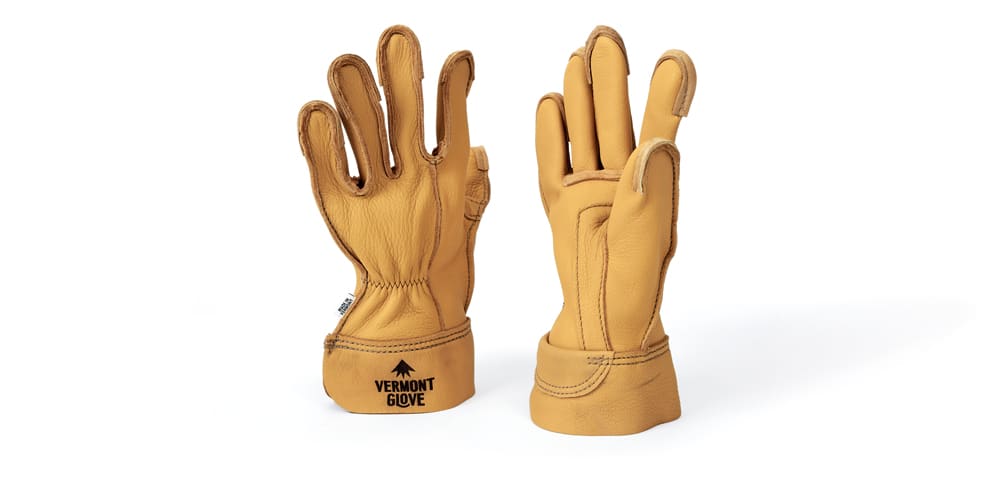
Vermont Glove | Randolph, VT
Photo Credit : Michael D. Wilson
When my pair arrived, they boasted outseam stitching (for comfort), seamless index finger (for dexterity), and reinforced seams at heavy wear points—and they were even prettier than the pictures. It killed me to get them dirty. So I waited until those little leather fingers practically wagged with accusation every time I stepped into the garden without them. The gloves went on. They got dirty. I hauled out the neatsfoot oil, rubbed it into every nook and cranny, and suddenly they were mine. Soft, buttery, and quite honestly, they fit like a glove.$100; vermontglove.com
Annie Graves
A New Hampshire native, Annie has been a writer and editor for over 25 years, while also composing music and writing young adult novels.
More by Annie Graves

